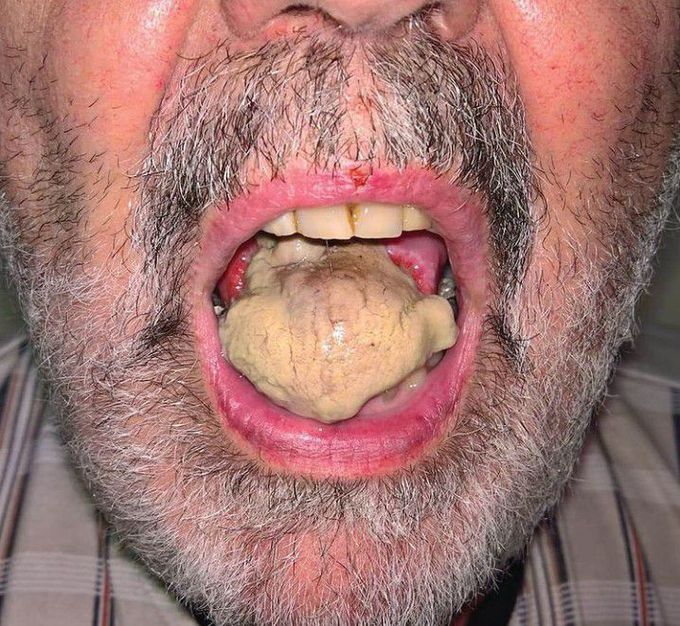


Giant cell arteritis-Tongue necrosis
Giant cell arteritis is an inflammation of the lining of the arteries. Most often, it affects the arteries of the head, especially those in the temples. Necrotic tongue (shown in the picture) is a a rare manifestation of giant cell arteritis requiring immediate empirical steroid treatment. Clinical symptoms are headache, jaw claudication, fever pain thickening of temporal artery. Although rare, tongue necrosis is an important diagnostic feature of Giant Cell arteritis. By: https://www.instagram.com/p/CQ4Fj5rp0wo/?utm_medium=copy_link
Never heard of this, interesting, if the steroids don't help at some point does the tougue have to be removed Is it painful?
It depends on the severity of the case, but yeah eventual self-amputation of the tongue happens as it is a rare complication of GCA.
" Giant cell arteritis (GCA, also known as Horton disease, cranial arteritis, and temporal arteritis) is categorized as a vasculitis of large- and medium-sized vessels because it can involve the aorta and great vessels. It also shares some histopathologic features with Takayasu arteritis, the other major "large vessel" (LV) vasculitis. Systemic symptoms are common in GCA and vascular involvement can be widespread, causing stenosis and aneurysm of affected vessels. It is the targeting of the tiny muscular arteries from cranial branches of the aortic arch, however, that gives rise to many of the most characteristic symptoms of GCA. The most feared complication, visual loss, is one potential consequence of the cranial phenotype of GCA. "


